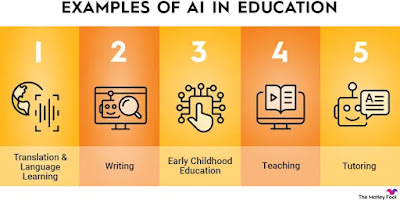Journal link
AI
By Delany Barrera
We have known that time is evolving. New technology that has improved our everyday life is now influencing our educational system settings. Technology has played a major role in education in the past years. From smart devices being used in a classroom to installed software programing to help promote different learning abilities. As always there are a few pros and cons when adding the words “AI” and “education” in one sentence
What is AI?
According to Británica AI is artificial intelligence, the ability of a digital computer or computer-controlled robot to perform tasks commonly associated with intelligent beings.
Erik J. Larson, William Hasselberger warns that in overestimating AI’s ability to mimic human intelligence we devalue the human and overlook human capacities that are integral to everyday life decision making, understanding, and reasoning.
“ The authors argue that inclusive participation in development can encourage alternate development paths that are less resource intensive. They further argue that beneficial applications for marginalized groups, such as improved automatic speech recognition systems, must be accompanied by plans to mitigate harm.”
What does linguistics have to do with artificial intelligence you might ask? Well others might say that AI isn’t going to help marginalize alternative developments in education but the possibility is endless filled with pros and cons. “ They seek to help educators develop literacy around the capacities and risks of these systems by providing an accessible introduction to machine learning and deep learning as well as rule-based AI.”
AI in linguistics has been incorporated to aid the studies but other researchers argue the lack of interpersonal communication. While’s others think it will benefit education. “Brynjolfsson’s focus on AI as “augmentation” converges with Microsoft computer scientist Kevin Scott’s focus on “cognitive assistance.” Steering discussion of AI away from visions of autonomous systems with their own goals, Scott argues that near-term AI will serve to help humans with cognitive work.”
↘ Read Article on JSTOR! Link Down Below ↙
Mills, Anna. Artificial Intelligence and Education: A Reading List, JSTOR Daily , 8AD, daily.jstor.org/artificial-intelligence-and-education-a-reading-list/.






Comments
Post a Comment